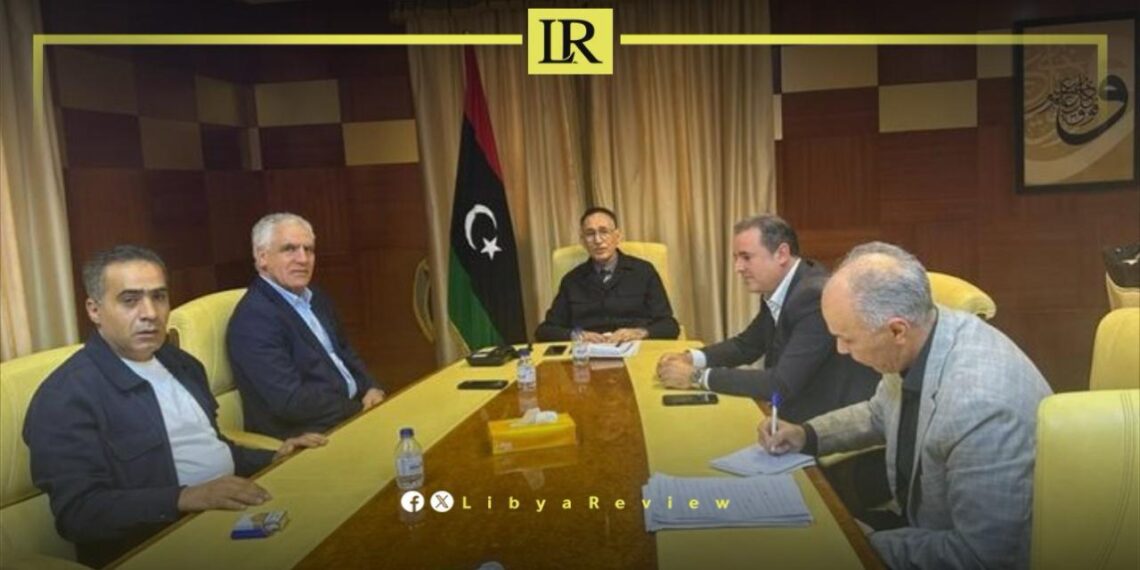Mohamed al-Hwaij, Libya’s Minister of Economy and Trade, recently engaged with traders to address their concerns regarding the supply of commodities, market competitiveness, and food security.
In a meeting held at the Ministry of Economy, discussions focused on the processes involved in import and export operations, highlighting the challenges business owners face in securing bank credits for supply procurement.
The conversation also touched upon the need for better regulation of supply operations, the hurdles encountered in inspections and shipping at national ports, and the procedures for releasing shipments.
Al-Hwaij directed the ministry’s deputy and relevant departments to closely monitor and respond to feedback from the business community on issues affecting supply chain operations, competitiveness in the market, and the security of food supplies for consumers.
Furthermore, al-Hwaij recently underscored the significance of evaluating Libya’s national interests prior to any commitment to join the World Trade Organization (WTO), advocating for a reform of the WTO to meet contemporary needs and support Libya’s transition towards a free-market economy.
Under al-Hwaij’s guidance, Libya has entered into several agreements with key Mediterranean nations, including Turkey, Italy, and Tunisia, moving towards a duty-free zone by abolishing tariffs on most imported goods, indicating a shift towards economic liberalization aimed at enhancing international trade and investment.
The WTO, alongside the International Monetary Fund (IMF) and the World Bank, aims to streamline global trade and monetary movements. However, perspectives on the organization’s effectiveness and goals are mixed, with some viewing it as beneficial for global trade and developing countries, while others see it as a mechanism for developed countries and multinational corporations to perpetuate dependence of developing nations on industrialized economies.
Libya, holding observer status in the WTO since 1952, has been cautious about pursuing full membership due to concerns over the influence of major powers within the organization. The country’s formal application for WTO membership in 2001 gained momentum following Libya’s increased engagement with the global community and improved relations with the United States.


